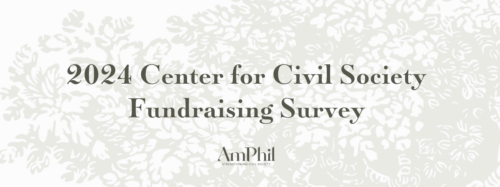As Americans, regardless of our own political beliefs, we should demand that our government and courts interpret our First Amendment rights broadly. The Bonta case is a great example of this tradition.
Last week, American Philanthropic’s Center for Civil Society hosted a webinar on donor privacy titled, Just How Important Is Donor Privacy? If you missed the webinar live, you can view it here. Moderated by Jack Fowler, guests John Bursch, Elizabeth McGuigan, and Howard Husock, discussed the Americans for Prosperity Foundation v. Bonta case, where the Supreme Court ruled that a California law requiring nonprofit organizations to disclose the identity of their donors was invalid due to the free speech clause of the First Amendment.
The dispute began when, in 2010, the California Attorney General required charities renewing their registrations to provide their IRS Form 990 along with the Schedule B to Form 990. Schedule B requires organizations to disclose the names and addresses of their major donors, and California insisted that having this information readily available would help it better police misconduct by charities. Typically, the IRS does not share Schedule B with states unless there is a need to do so, such as evidence or suspicion of fraud. Some California nonprofits complied with the new rule, while others questioned the constitutionality of the requirement. California insisted that Schedule B forms would be kept confidential, although some forms were made public by mismanagement and hacking as the case made its way through the courts.
During the webinar, John Bursch made an interesting point when he mentioned that the Supreme Court ultimately relied on the Free Speech Clause of the First Amendment and not the Freedom of Assembly Clause. While this might seem like a minor issue that only lawyers can appreciate, Bursch is absolutely correct to make mention of this. This is because the nonprofit organizations and civic associations that Americans use to advance civil society are rooted in our ability and right to assemble in addition to our right to speak freely.
One might question, is donor privacy really that big of an issue? Afterall, California was never explicitly trying to prevent certain types of charitable giving. Perhaps some would argue that if a donor believes in their philanthropy so much (and possibly receive a personal tax benefit), that there is no harm in that information being made public or given to states Attorneys Generals. On this question, Elizabeth McGuigan made some excellent points. Donors expect privacy for multiple reasons, including (1) the fact that many religious traditions encourage us to give anonymously, (2) sheer modesty, (3) the preference to avoid unwanted fundraising solicitations, and (4) the ability to stay free from harassment from people who may not agree with their particular charitable giving.
Ultimately, the court ruled in favor of donor privacy. As Howard Husock noted, numerous amicus briefs were filed in the Bonta case, including some from organizations that are generally considered left of center. The ACLU filed a brief in favor of donor privacy, as did the NAACP Legal Defense and Educational Fund. As Americans, regardless of our own political beliefs, we should demand that our government and courts interpret our First Amendment rights broadly. The Bonta case is a great example of this tradition.






